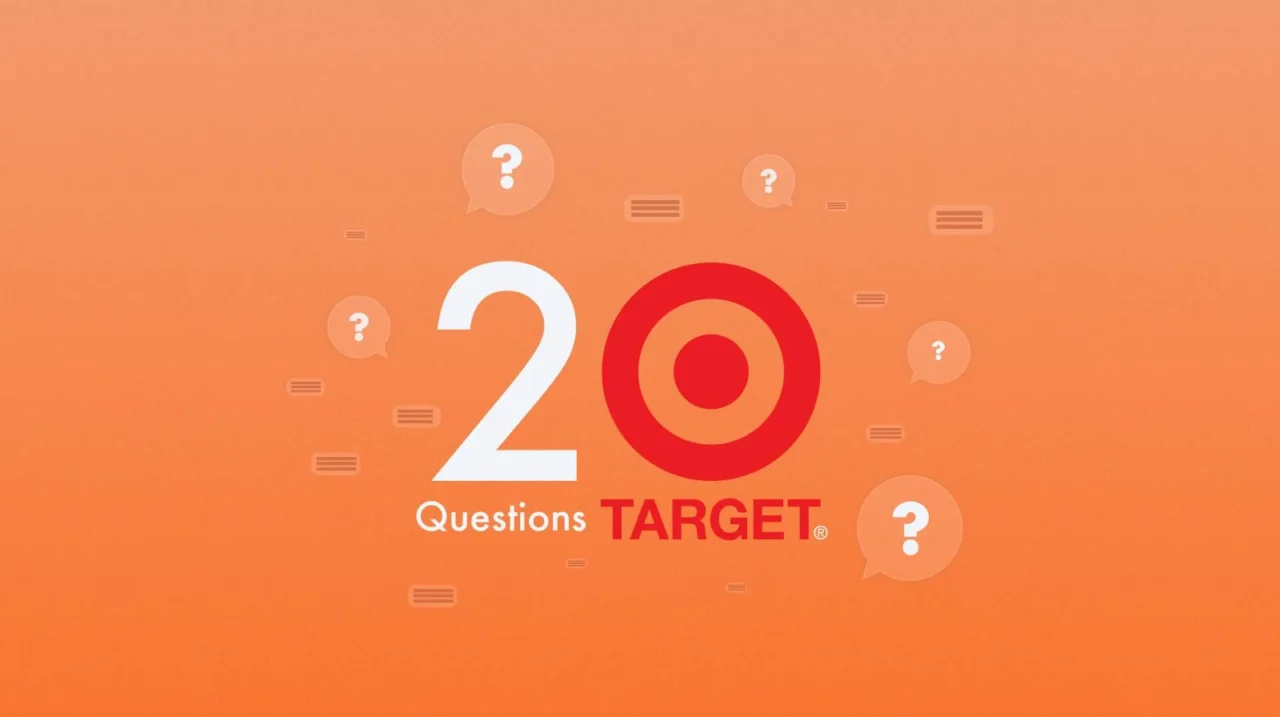TOP 20 Target Interview Questions + Answer Samples [UPDATED 2025]


Ace Your Target Interview with Huru: Practice. Improve. Succeed!
Nail your next Target interview with unlimited AI-powered practice and instant feedback on Huru.ai. Try it free today and transform interview nerves into career confidence!
Unlocking Interview Success at Target in 2025: What’s New?
Cracking a Target job interview in 2025 is about more than rehearsing standard questions. It’s about understanding Target’s culture, role expectations, and the subtle nuances of both in-person and virtual interviews. In this guide, you’ll find the 20 most common Target interview questions, sample answers, and expert tips to stand out. We’ll break down the STAR method, address video interview best practices, and answer the most pressing candidate concerns for the year ahead.
- Expert STAR-based answer frameworks for Target
- Sample questions for key roles (team member, lead, manager, corporate)
- Virtual interview strategies for 2025
- Questions to ask interviewers—and what they reveal about you

The STAR Method: Your Secret Weapon for Target Interviews ⭐
Target’s interviews are famous for scenario-based and behavioral questions. The best way to answer? Use the STAR method—an approach that helps you structure responses with clarity and impact:
- Situation: Set the scene. What was the context?
- Task: What needed to be done? What was your responsibility?
- Action: What steps did you take? Be specific.
- Result: What was the outcome? (Quantify if possible!)
Practice STAR answers using Huru’s AI-powered instant feedback tool for true interview mastery!
💡 Key Takeaway
Answers that demonstrate Target’s core values—teamwork, customer service, adaptability, and growth—make the strongest impression. Reflect Target’s culture in every answer!
Most Common Target Interview Questions in 2025 (with Sample Answers)
Here are the 20 most likely Target interview questions you’ll be asked in 2025—plus answer samples and quick tips for each. Adapt these to your story, role, and the Target mission!
| Question | Sample Answer/STAR Framework |
|---|---|
| 1. Tell me about yourself. | “I’m passionate about delivering a great guest experience and thrive in fast-paced environments. In my last role, I managed a team of 10, improved customer satisfaction scores by 12%, and was recognized for going above and beyond for shoppers. I’m excited to bring that same energy to Target.” |
| 2. Why do you want to work at Target? | “I admire Target’s commitment to team culture, diversity, and guest service. I want to be part of a company that values personal growth and community impact.” |
| 3. How do you handle a difficult customer? | S: A guest was upset their order was delayed. T: My responsibility was to resolve the issue and ensure satisfaction. A: I listened carefully, apologized, offered a solution, and followed up. R: The customer left positive feedback and returned for future purchases. |
| 4. Describe a time you worked on a team. | S: During a busy holiday season… T: I was tasked with keeping shelves stocked. A: Communicated with team, rotated shifts, supported new hires. R: We exceeded sales targets and kept guests happy! |
| 5. How do you prioritize tasks in a fast-paced environment? | “I make a quick checklist, address urgent guest needs first, and communicate with my team to ensure nothing is missed. This keeps everyone focused and productive.” |
| 6. Tell me about a time you went above and beyond for a guest. | S: An elderly customer needed help finding items. T: I offered personal assistance and walked them through the aisles. A: I suggested alternatives when items were out of stock. R: The guest shared their gratitude with management. |
| 7. How do you handle conflict with a coworker? | “I address the issue privately, listen to their perspective, and find a solution that works for both. Building strong relationships is key to our team’s success.” |
| 8. Give an example of adapting to change at work. | S: Introduction of new self-checkout stations. T: I had to learn the system quickly. A: I took online training, then helped others adapt. R: Our department had the smoothest transition in the store. |
| 9. How do you ensure excellent customer service? | “I greet each guest warmly, listen to their needs, and follow up to make sure they’re satisfied before they leave.” |
| 10. Tell me about a mistake you made and how you handled it. | S: I doubled a guest’s order by mistake. T: I needed to fix the error quickly. A: I acknowledged it, apologized, and immediately processed a refund. R: The guest appreciated my honesty and left happy. |
| …and 10 more essential Target interview questions! Scroll down for more role-specific Q&As 👇 | |
Full list of 20 top Target questions (with sample answers for each role):
- Describe a time you had to meet a tight deadline.
- How do you handle multiple priorities?
- How would you support diversity and inclusion at Target?
- Give an example of solving a problem creatively.
- How do you motivate others?
- What would you do if you saw a teammate struggling?
- What makes excellent guest service at Target?
- Describe a time you succeeded under pressure.
- How do you keep yourself organized?
- Where do you see yourself in five years?
Role-Specific Target Interview Questions & Answers 🔎
Target offers varied roles—from store team members to team leads and corporate professionals. Here are 3 examples for each:
Store Team Member
- How would you handle a busy checkout line?
“I would stay calm, work efficiently, greet every guest, and call for backup if needed.” - How do you approach restocking shelves?
“Prioritize high-demand items, check for accuracy, and keep the area tidy for guests.” - What would you do if you noticed shoplifting?
“Follow store protocol—alert a manager, don’t confront, and ensure guest and team safety.”
Team Lead/Supervisor
- How do you motivate a team during stressful times?
“By communicating goals, recognizing effort, and supporting team members to foster collaboration.” - Describe a time you had to mediate a conflict.
“Listened to both sides, encouraged compromise, and found a solution that benefited the team and guests.” - How do you measure team success?
“Track guest satisfaction, sales targets, and team feedback to ensure alignment with company goals.”
Corporate/Office Roles
- How do you handle competing project deadlines?
“Prioritize based on urgency and impact, and communicate clearly with all stakeholders.” - Describe a project where you led cross-functional collaboration.
“Facilitated regular meetings, clarified roles, and focused on shared goals to drive results.” - How do you stay updated on industry trends relevant to Target?
“Follow industry news, attend webinars, and share insights with my team.”
Mastering Target Video & Virtual Interviews: 2025 Best Practices 🎥
Target’s shift to video interviews means you must prep for both technical and personal success—especially for remote and hybrid roles. Here’s how to stand out:
- Check your tech: Test camera, mic, and Wi-Fi ahead of time.
- Control your environment: Quiet, well-lit space with a neutral background.
- Dress professionally: Even remotely, first impressions count.
- Use body language: Smile, nod, and maintain eye contact with the camera.
- Practice mock interviews with Huru’s unlimited interview simulator for real-time feedback and confidence.
Watch this latest guide for visual tips on Target interview success:
💡 Key Takeaway
Virtual interviews at Target are here to stay. Show your best self—tech-ready, confident, and with answers that highlight teamwork and adaptability.
Questions to Ask Your Target Interviewer (and Why They Matter)
The questions you ask are just as important as your answers. Thoughtful, tailored questions show curiosity, culture fit, and that you’re serious about your Target career. Here are some to consider:
- What does success look like in this role after six months?
- What opportunities are there for growth at Target?
- How does Target support diversity, inclusion, and professional development?
- What are the biggest challenges facing your team right now?
- How does Target measure guest service excellence?
Get more strategic candidate questions and first-interview insights in this Huru guide.
💡 Key Takeaway
Asking smart questions shows you’re proactive and invested in Target’s mission and your growth. Prepare at least 2-3 questions before every interview!
Target Interview FAQs for 2025: What Candidates Want to Know 🤔
Target interviews are friendly but thorough, focused on customer service, teamwork, and scenario-based questions. They’re easier if you prep with real practice, like on Huru’s AI platform.
How long is the interview process?
2-3 rounds, often including a virtual interview and a final in-person or panel interview for most roles.
What should I wear to a Target interview?
Business casual or neat attire with Target’s brand in mind—clean, confident, and approachable.
What if English isn’t my first language?
Target values diversity—focus on communication, clarity, and guest service. Practice with mock interviews to build confidence!
How can I stand out?
Combine STAR-structured answers, a guest-first attitude, and thoughtful questions. Use Huru’s instant feedback to polish your delivery.
2025 Interview Prep Checklist: Land the Target Offer 🚀
- Review the 20 most likely Target questions (above)
- Practice answering with the STAR method
- Customize answers for your Target role
- Test technology for virtual interviews
- Prepare 2-3 thoughtful questions to ask your interviewer
- Use Huru’s free AI-powered interview tool for unlimited practice and feedback
- Dress for Target’s brand (confident, approachable, professional)
- Follow up with a thank-you note after your interview
Further Resources & Power-Prep Links
- From campus to career: Ace your first job interview with Huru
- The secret weapon of successful job seekers: AI-powered interview practice
- How to nail a job interview: Step-by-step guide
- General interview strategies (external): Official Target Careers
About the Author
Elias Oconnor is a senior content writer at Huru.ai. With a decade of experience in career tech and job search coaching, Elias specializes in actionable, up-to-date strategies to help candidates land their dream job. Connect with Huru for more tips or to request personalized interview advice!


 Jul 07,2022
Jul 07,2022  By Elias Oconnor
By Elias Oconnor